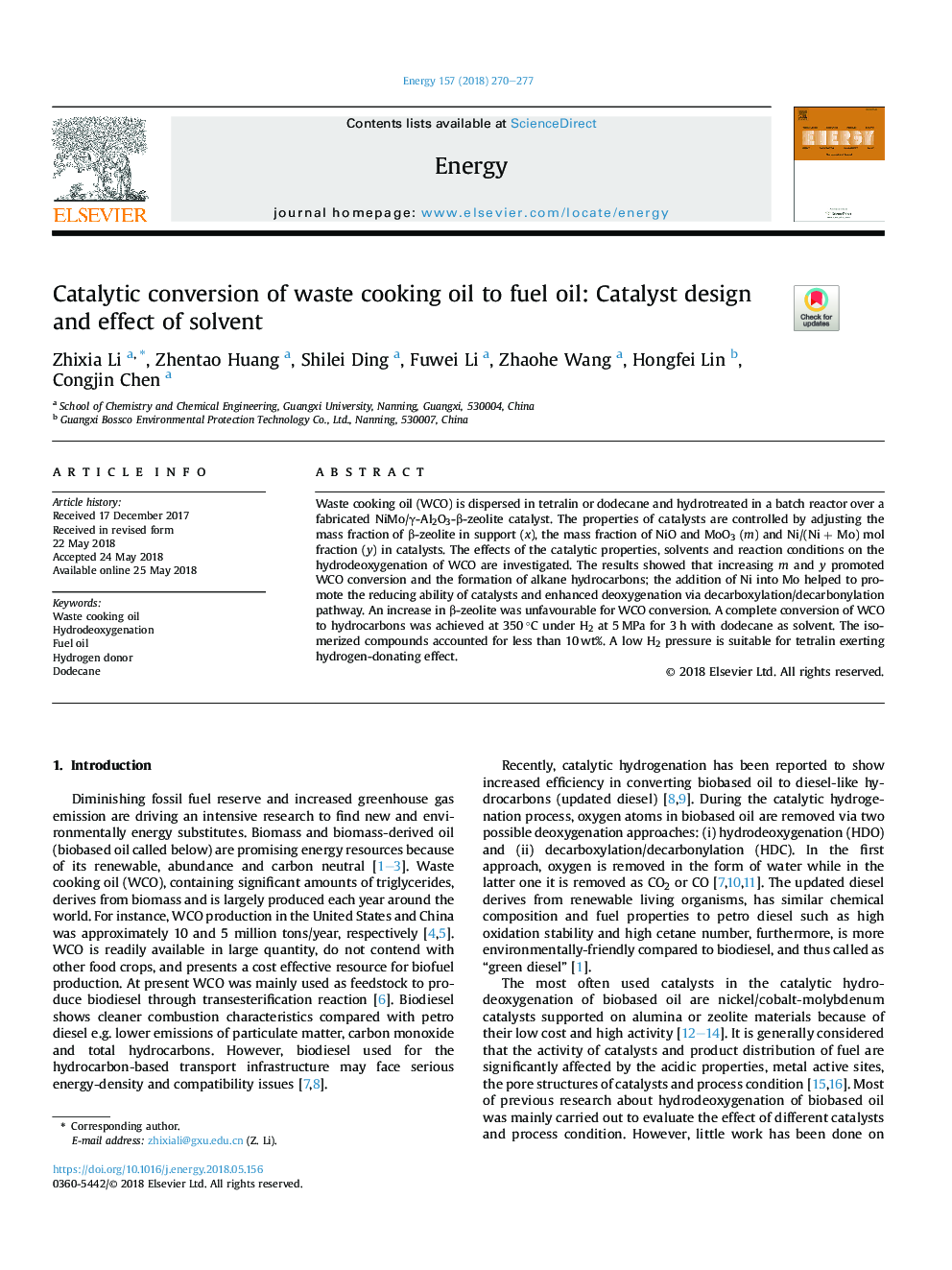| Article ID | Journal | Published Year | Pages | File Type |
|---|---|---|---|---|
| 8071328 | Energy | 2018 | 8 Pages |
Abstract
Waste cooking oil (WCO) is dispersed in tetralin or dodecane and hydrotreated in a batch reactor over a fabricated NiMo/γ-Al2O3-β-zeolite catalyst. The properties of catalysts are controlled by adjusting the mass fraction of β-zeolite in support (x), the mass fraction of NiO and MoO3 (m) and Ni/(Ni + Mo) mol fraction (y) in catalysts. The effects of the catalytic properties, solvents and reaction conditions on the hydrodeoxygenation of WCO are investigated. The results showed that increasing m and y promoted WCO conversion and the formation of alkane hydrocarbons; the addition of Ni into Mo helped to promote the reducing ability of catalysts and enhanced deoxygenation via decarboxylation/decarbonylation pathway. An increase in β-zeolite was unfavourable for WCO conversion. A complete conversion of WCO to hydrocarbons was achieved at 350â¯Â°C under H2 at 5â¯MPa for 3â¯h with dodecane as solvent. The isomerized compounds accounted for less than 10â¯wt%. A low H2 pressure is suitable for tetralin exerting hydrogen-donating effect.
Related Topics
Physical Sciences and Engineering
Energy
Energy (General)
Authors
Zhixia Li, Zhentao Huang, Shilei Ding, Fuwei Li, Zhaohe Wang, Hongfei Lin, Congjin Chen,
